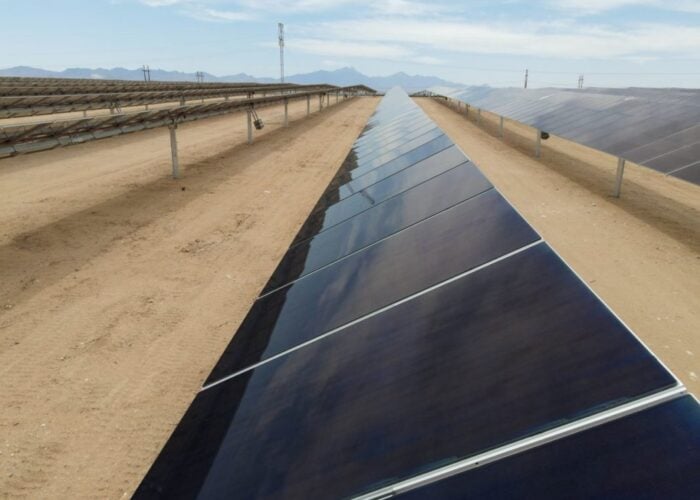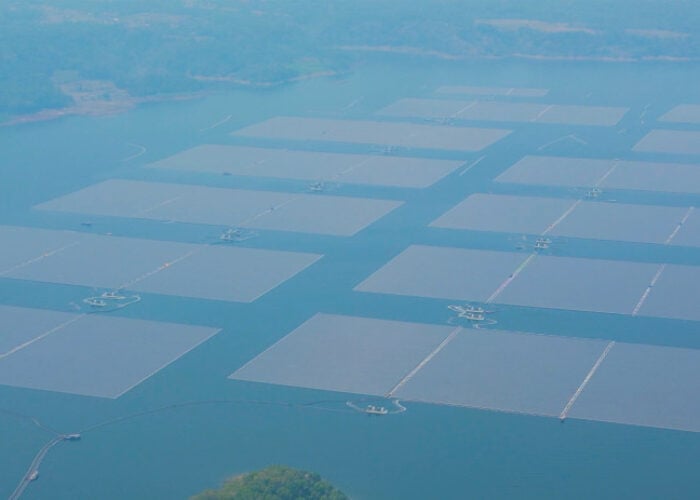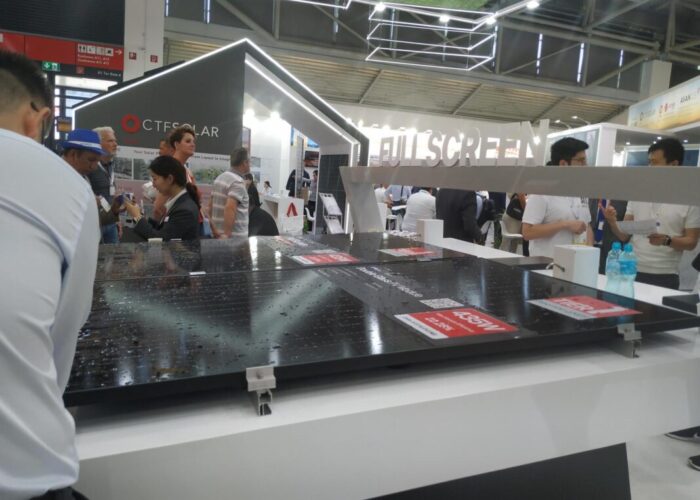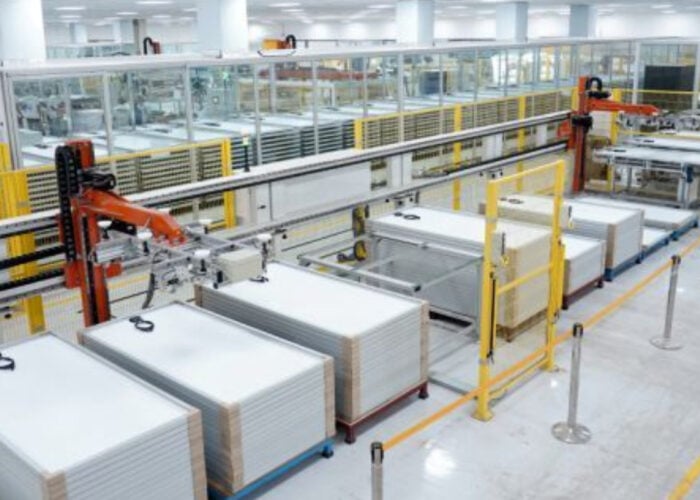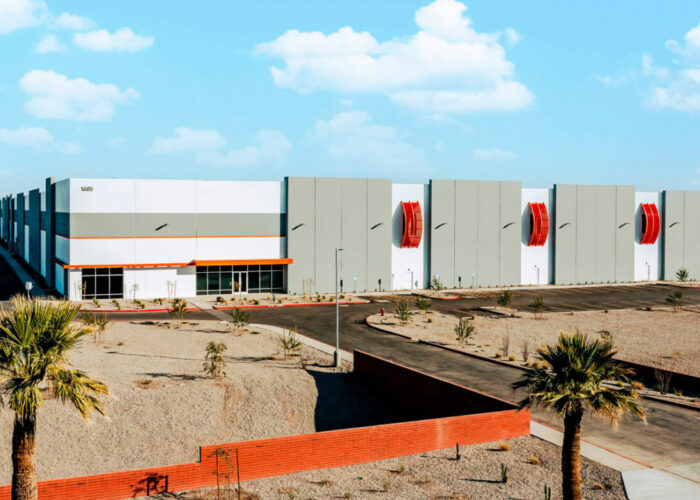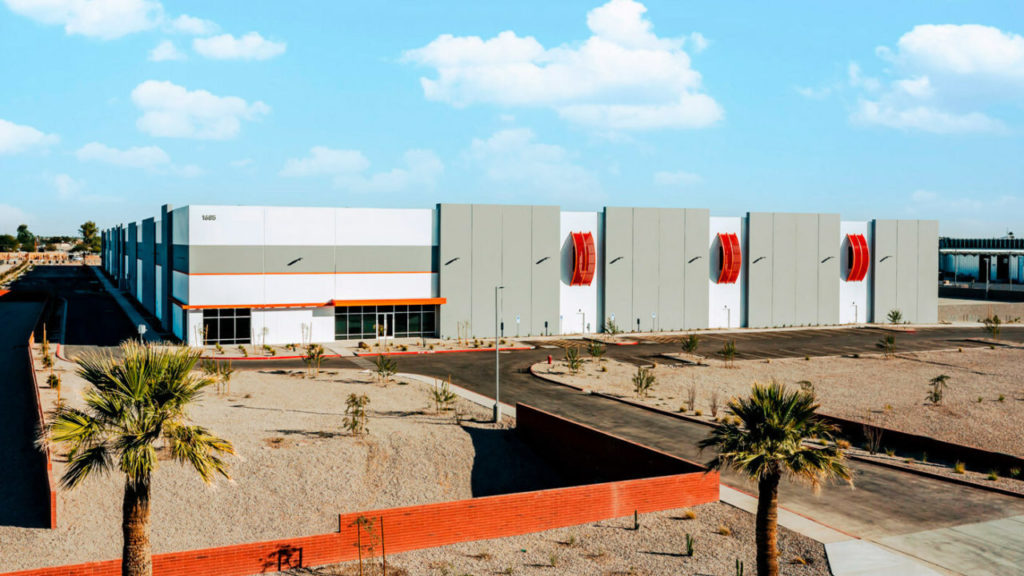
Swiss PV manufacturer Meyer Burger has said it has started “receiving shipments of equipment and tools” at its newest manufacturing facility, a 2GW plant in Goodyear, in the US state of Arizona.
Originally designed as a 1.5GW annual manufacturing facility, Meyer Burger has since chosen to expand its solar module production capacity. The company noted that, once the expansion work is completed this year, the facility will employ 630 people, and is currently looking to hire staff at the plant.
Unlock unlimited access for 12 whole months of distinctive global analysis
Photovoltaics International is now included.
- Regular insight and analysis of the industry’s biggest developments
- In-depth interviews with the industry’s leading figures
- Unlimited digital access to the PV Tech Power journal catalogue
- Unlimited digital access to the Photovoltaics International journal catalogue
- Access to more than 1,000 technical papers
- Discounts on Solar Media’s portfolio of events, in-person and virtual
Or continue reading this article for free
The news follows Meyer Burger’s signing of a module supply deal with German developer Baywa r.e, which will see the Swiss company supply 1.25GW of Meyer Burger modules a year from 2025 to 2029. The facility’s expansion work is being completed, in part, to meet the requirements of this deal, and the plant will produce panels in Meyer Burger’s SmartWire range of heterojunction technology (HJT) modules.
This range includes three products, dubbed “black”, “white” and “glass”, which feature power ratings as high as 395Wp, 400Wp and 390Wp, respectively, and conversion efficiencies of up to 21.5%, 21.7% and 21.8%, respectively.
“The provisions of the Inflation Reduction Act (IRA), particularly the Section 45X manufacturing credit coupled with direct pay, will be critical to our ability to make America the epicentre of our solar energy manufacturing efforts in the years to come,” wrote Meyer Burger in a letter to the US Internal Revenue Service in November 2022, outlining the role that supportive legislation has played in encouraging more US-based solar manufacturing.
Of its initial 1.5GW capacity, 1GW was set aside for the utility-scale sector, alongside 500MW for the distributed generation sector, and Meyer Burger has not yet announced which sector will benefit from the additional manufacturing capacity.
Research from the US Solar Energy Industries Association (SEIA) and Wood Mackenzie forecast the US residential solar market to grow by 13% in 2023, driven predominantly by strong growth in California and the north-east.
However, with higher interest rates lowering sales volumes in markets, including Texas and Arizona, some states’ residential sectors have contracted, leading to the SEIA and Wood Mackenzie to expect the US residential solar market as a whole to shrink by 12% in 2024. Those involved in the Arizona solar sector will hope that manufacture and distribution of residential solar products in the state could help reverse this decline.

